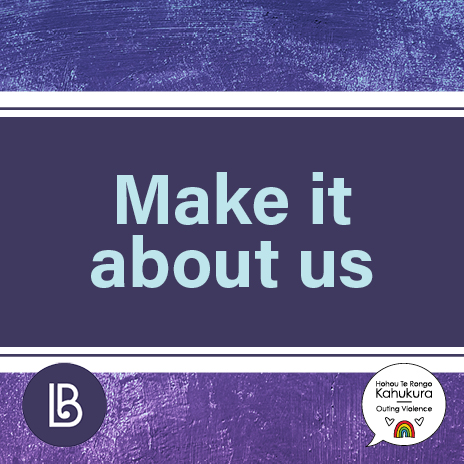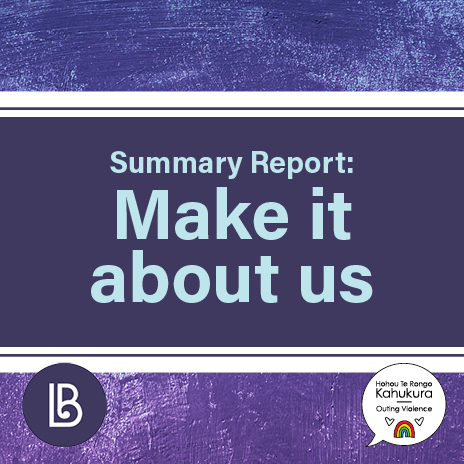Make it about us: improving NZ Police responses
With The Backbone Collective via an anonymous online survey, we have gathered feedback from women, trans and non-binary victim-survivors about how the NZ Police respond to intimate partner, family and sexual violence and how that response can be improved. We heard from 599 diverse victim-survivors throughout Aotearoa, including 76 trans and non-binary victim-survivors and 139 sexuality diverse women.
Our full report and summary report include powerful – and often very disturbing – accounts of victim-survivors experiences with NZ Police.
There are significant fears for many victim-survivors about reaching out based on experiences of discrimination from NZ Police.
That we are just as afraid of being disbelieved, if not more due to our takatapuitanga. Māori Takatāpui person
They don’t understand how to communicate with trans people. My friend and I were constantly deadnamed, our identities were not respected and we felt uncomfortable and unsupported. Pākehā pansexual trans woman
Calling the police despite these fears was often the last resort for victim-survivors, who hoped it would make them safer, and make the person harming them accountable. However, many – especially trans and non-binary victim-survivors, Māori victim-survivors and/or disabled victim-survivors – said police involvement made them and/or their children less safe.
If they could just not call me a faggot for a moment that would be cool. Māori pansexual non-binary person
My children were terrified of him and still had to go to his house because of a parenting order. Pasifika bisexual woman
Some victim-survivors received mana-enhancing and dignified responses that increased their safety, and shared police practices that had worked for them.
I felt like they truly believed me and that I was taken seriously. I didn’t feel judged. Māori bisexual woman
Making my ex partner leave me alone for 48 hours (wasn’t long enough but it was a start) and they couldn’t be at my house. having this space from them gave me the strength/power /courage to end the relationship. Pākehā bisexual trans man
Victim-survivors also had many practical ideas for improving the police response to make it safer, more effective and better suited to the needs of victim-survivors, including children. These included practical suggestions about staffing, resources and specialist training to address the very real gaps in knowledge and practice in responding to the lived experience of all victim-survivors, particularly those who are Māori, Pasifika, ethnic and/or disabled.
Be aware of heterosexual couples containing a queer (LGBTQ) person. Some abusers will use a victims queerness as a means of abuse…Be aware of parents committing abuse against their Queer/LGBTQ children. Let those kids know that its not their fault, it is their parents fault for their intolerance towards others. Māori pansexual woman
Don’t assume bisexual people are promiscuous. Or take people making complaints less seriously if they are. Pākehā bisexual non-binary person
Treat us with no less respect or understanding than you would someone who is straight… Learn our lingo, so we don’t have to explain it to you during some of the most painful and vulnerable conversations we will ever have in our lifetimes. Another ethnicity, queer trans man
Hohou Te Rongo Kahukura and The Backbone Collective have the deepest gratitude for all the victim-survivors who shared their experiences in this research, and we honour the needs they identified for change.


